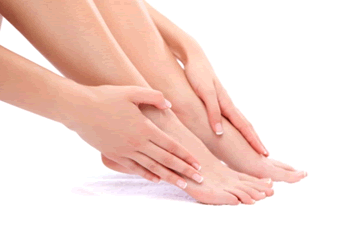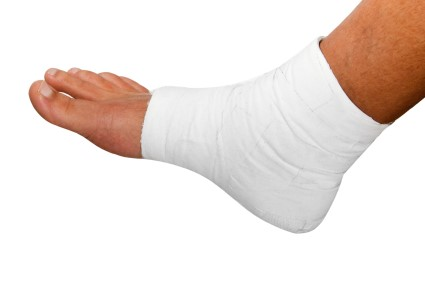Blog
Kentucky Residents Holding Event to Help Homeless Vets Care for their Feet
 Louisville, KY is asking their residents to help homeless veterans take better care of their feet as they recognize the vast population of former service members that are currently homeless. On October 7, the city is participating in the Retired & Senior Volunteer Program, a federally funded event that offers foot washing for homeless veterans. While the city estimated nearly 260 homeless veterans last year, they understand that many of which are suffering from diabetes and other foot ailments may not have the proper care, resources, or understanding to care for their feet. The event will have volunteers use a clean washcloth and towel in addition to providing new socks for the volunteers.
Louisville, KY is asking their residents to help homeless veterans take better care of their feet as they recognize the vast population of former service members that are currently homeless. On October 7, the city is participating in the Retired & Senior Volunteer Program, a federally funded event that offers foot washing for homeless veterans. While the city estimated nearly 260 homeless veterans last year, they understand that many of which are suffering from diabetes and other foot ailments may not have the proper care, resources, or understanding to care for their feet. The event will have volunteers use a clean washcloth and towel in addition to providing new socks for the volunteers.
Every day foot care is very important, especially for those that are lacking the proper foot care resources. For more information about everyday foot care, consult with Dr. Michael E. Newman and Dr. Denise Kohler of Pennsylvania. Our doctorswill provide you with the foot- and ankle information you seek.
Every Day Foot Care
Often, people take care of their bodies, face and hair more so than they do for their feet. But the feet are a very important aspect of our bodies, and one that we should pay more attention to. After all, without our feet, we would not be able to perform most daily tasks. It is best to check your feet regularly to make sure there are no new bruises or cuts that you may not have noticed before, for example.
For dry feet, moisturizer can easily be a remedy and can be applied as often as necessary to the affected areas. Wearing shoes that fit well can also help you maintain good foot health, as well as making it easier to walk and do daily activities without the stress or pain of ill-fitting shoes, high heels, or even flip flops.
Also, wearing clean socks with closed shoes is important to ensure that sweat and bacteria do not accumulate within the shoe. Clean socks help to prevent athlete’s foot, fungi problems, bad odors, and can absorb sweat.
If you have any questions, please feel free to contact our offices located in Plymouth Meeting and Ambler, PA. We offer the newest diagnostic and treatment technologies for all your foot and ankle injuries.
Woman Receives Shockwave Therapy for Bunion Pain
 Floria Antell was suffering from bunion pain and while her podiatrist recommended she had surgery, Antell did not want to miss out on her Pilate’s classes and walking her dog. The seventy-six year old decided to get another opinion and received anti-inflammatory and shockwave therapy treatment. After being healed within six months Antell recalled being thankful for not having to stay bedridden and learned how to take better care of her feet. When faced with foot pain many believe that surgery would be the best way to heal, but there are nonsurgical methods such as shockwave therapy available to incorporate healing.
Floria Antell was suffering from bunion pain and while her podiatrist recommended she had surgery, Antell did not want to miss out on her Pilate’s classes and walking her dog. The seventy-six year old decided to get another opinion and received anti-inflammatory and shockwave therapy treatment. After being healed within six months Antell recalled being thankful for not having to stay bedridden and learned how to take better care of her feet. When faced with foot pain many believe that surgery would be the best way to heal, but there are nonsurgical methods such as shockwave therapy available to incorporate healing.
Shockwave therapy is a treatment commonly used to treat various injuries and conditions, particularly plantar fasciitis in the feet. To learn more, consult with Dr. Michael E. Newman and Dr. Denise Kohler of Pennsylvania. Our doctors will provide you with quality foot and ankle information and treatment.
Shockwave Therapy
Shockwave therapy is a new treatment option designed to treat bone conditions such as tennis elbow, shoulder pain, and others. Shockwave therapy uses high intensity sound waves that are directed to the affected tissues of the body with pinpoint accuracy. The effects are very beneficial, leading to a production of collagen fibers, eliminating inflammation.
Who Benefits from Shockwave?
Shockwave is recommended for patients suffering from heel pain and associated problems. Heel pain is a common condition which can be caused by obesity, overexertion, and spending a substantial amount of time on hard floors with your feet exposed and unsupported.
Fast and Easy
The therapy is actually a simple process that can leave patients feeling better the very next day. Shockwave therapy is not as dramatic as it sounds. It enables more blood flow to effected areas, attacking the source of the problem so treatment lasts for a long time.
Treatment & Recovery Time
Shockwave treatment will enable your feet to recover quickly. This is especially important since surgery is not required. It is cost effective and does not require the use of anesthesia. This treatment is a better option to surgery, since it is proven safe.
If you have any questions please feel free to contact our offices located in Plymouth Meeting and Ambler, PA. We offer the newest diagnostic and treatment technologies for all your foot and ankle needs.
Achilles Tendon Lengthening Procedure Used to Reduce Foot Pain
 George Dawson suffered from pain due to his diabetes for many years and has been dealing with a stiff Achilles tendon due to the pressure placed on his foot. The stiff Achilles tendon meant that the weight was not evenly distributed on his foot and Dawson would need to have the tendon surgically lengthened to relieve the pain and heal properly. Dawson’s podiatrist split his Achilles tendon where it would typically meet the calf muscle, giving it more slack and providing ease to the foot. For nearly two years, George Dawson has not had foot pain since.
George Dawson suffered from pain due to his diabetes for many years and has been dealing with a stiff Achilles tendon due to the pressure placed on his foot. The stiff Achilles tendon meant that the weight was not evenly distributed on his foot and Dawson would need to have the tendon surgically lengthened to relieve the pain and heal properly. Dawson’s podiatrist split his Achilles tendon where it would typically meet the calf muscle, giving it more slack and providing ease to the foot. For nearly two years, George Dawson has not had foot pain since.
Achilles tendon injuries and problems need immediate attention to avoid future complications. If you have any concerns feel free to contact Dr. Michael E. Newman and Dr. Denise Kohler of Pennsylvania. Our doctor will treat your foot and ankle needs.
What is the Achilles Tendon?
The Achilles tendon is a tendon that connects the lower leg muscles and calf to the heel of the foot. It is the strongest tendon in the human body and is essential for making movement possible. Because this tendon is such an integral part of the body, any injuries to it can cause severe difficulties and should immediately be presented to a doctor.
What are the symptoms of an Achilles Tendon Injury?
There are various types of injuries that can affect the Achilles tendon. The two most common are Achilles tendinitis and ruptures of the tendon.
Achilles Tendinitis Symptoms
- Inflammation
- Dull to Severe Pain
- Increased blood flow to the tendon
- Thickening of the tendon
Rupture Symptoms
- Extreme pain and swelling in the foot
- Total immobility
Treatment and Prevention
Achilles tendon injuries are diagnosed by a thorough physical evaluation, which can include an MRI. Treatment involves rest, physical therapy, and in some cases, surgery. However, various preventative measures can be taken to avoid these injuries, such as:
- Thorough stretching of the tendon before and after exercise
- Strengthening exercises like calf raises, squats, leg curls, leg extensions, leg raises, lunges, and leg presses
If you have any questions please feel free to contact our offices located in Plymouth Meeting and Ambler, PA. We offer the newest diagnostic tools and technology to treat your foot and ankle needs.
Study Finds Link between Acne and RA
 According to research conducted by scientists at the Leiden University Medical Centre in Holland, rheumatoid arthritis may be triggered through a microbial infection. Researcher Diahann Jansen has stated that the study shows common bacteria in the flu virus as well as acne. “It doesn’t necessarily mean if you get acne you will get rheumatoid arthritis, but it is possible that if you encounter such a pathogen at some point your immune system will start a response to that pathogen,” stated Jansen. This new discovery is only the beginning in understanding the relationship between microbes and rheumatoid arthritis.
According to research conducted by scientists at the Leiden University Medical Centre in Holland, rheumatoid arthritis may be triggered through a microbial infection. Researcher Diahann Jansen has stated that the study shows common bacteria in the flu virus as well as acne. “It doesn’t necessarily mean if you get acne you will get rheumatoid arthritis, but it is possible that if you encounter such a pathogen at some point your immune system will start a response to that pathogen,” stated Jansen. This new discovery is only the beginning in understanding the relationship between microbes and rheumatoid arthritis.
Understanding where RA starts will help treat and prevent the condition. If you are suffering from rheumatoid arthritis contact, Dr. Michael E. Newman and Dr. Denise Kohler of Pennsylvania. Our doctors will treat your foot and ankle needs.
What Is Rheumatoid Arthritis?
Rheumatoid Arthritis (RA) is an autoimmune disorder in which the body’s own immune system attacks the membranes surrounding the joints. Severe pain and immobility are caused by an inflammation of the lining of your joints, and in worse cases the destruction of the joint’s cartilage and bone can occur.
Rheumatoid Arthritis of the Feet
Although RA usually attacks multiple bones and joints throughout the entire body, many cases result in pain in the foot or ankle area. Pain will often initially present in the toes before the condition worsens and spreads throughout the entire foot.
Symptoms
- Swelling and pain in the feet
- Stiffness in the feet
- Pain on the ball or sole of the feet
- Joint shift and deformation
Diagnosis
Quick diagnosis of RA in the feet is important so that your podiatrist can treat the area effectively. Your doctor may ask you about your medical history and lifestyle to help determine possible causes of your RA.
Treatment
Unfortunately, there is no cure for RA, so treatment options are designed to specifically target the symptoms of it, most notably the pain it causes. Two types of anti-inflammatory drugs – non-steroidal or NSAIDs and corticosteroids – may be prescribed by your doctor. In some severe cases where the joints are too badly damaged, surgery may be an option. As always, speak with your podiatrist to help determine the appropriate treatment options available to you.
If you have any questions please feel free to contact our offices located in Plymouth Meeting and Ambler, PA. We offer the newest diagnostic tools and technology to treat your foot and ankle needs.
